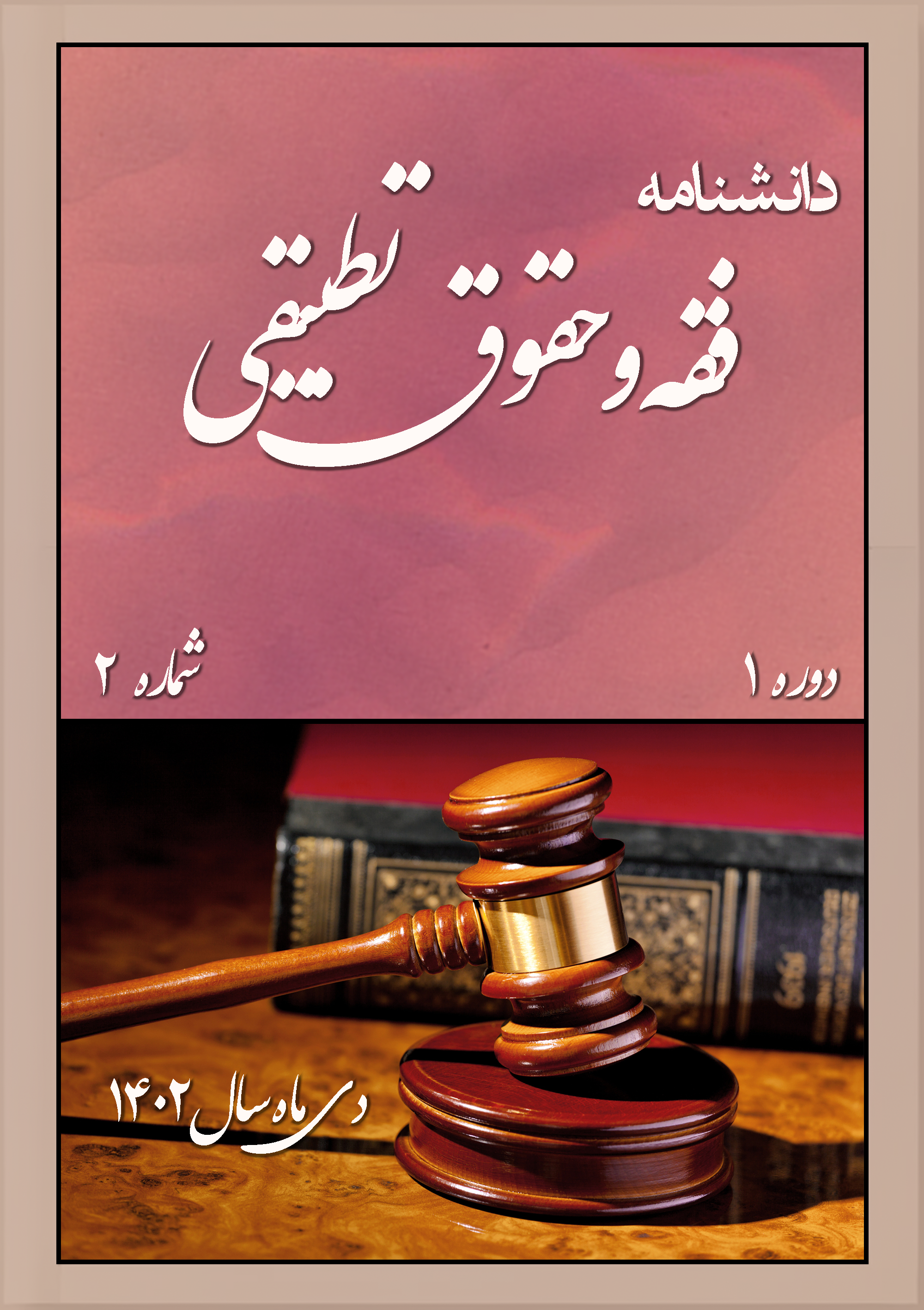Guarantees of the Enforcement of Strategic Principles in Civil Proceedings: A Comparative Study Between Iranian and English Law
Keywords:
Principles of civil procedure, guarantee of execution, fair trial, Iranian and English lawAbstract
The right to a fair trial encompasses a set of principles and rules established to protect the rights of the parties involved in legal proceedings. These guarantees, recognized as fundamental and essential human rights, are explicitly referenced in international human rights instruments such as the Universal Declaration of Human Rights, the International Covenant on Civil and Political Rights, the European Convention on Human Rights, and the American Convention on Human Rights. This right is also examined comparatively within the legal frameworks of Iran and England. This research is theoretical in nature, utilizing a descriptive-analytical method. Data collection was conducted through a library-based approach by consulting documents, books, and scholarly articles. The findings of the study indicate that if the international principles of a fair trial are implemented with precision and courage, they lead to the strengthening of public trust in fair and reliable adjudication. This is due to the fact that the integrity and proper functioning of other branches of government depend on the health and credibility of the judiciary. The principles of fair trial in civil proceedings are shared between English law and Iranian law. However, in both jurisdictions, these principles lack explicit enforceable guarantees. The enforcement mechanisms that do exist stem from the implicit acceptance of the spirit of fair trial principles, which are acknowledged within the laws of Iran and England. These mechanisms are not the result of explicit statutory provisions specifically designed to enforce the right to a fair trial.
Downloads
References
Ashouri, M. (1999). Criminal Procedure (Vol. 1). Samt Publications.
Beaney, W. M. (1963). The Right to Counsel: Past, Present, and Future. Virginia Law Review, 49(6), 1157. https://doi.org/10.2307/1071050
Eftekhar Jahromi, G., & Shahbazinia, M. (2004). A study of the estoppel rule in English and American law. Legal Journal of the Legal Services Office(30).
Goldoust Joibari, R. (2008). General Principles of Criminal Procedure. Mizan Publishing.
Grey, T. C. (1988). Holmes and Legal Pragmatism. Stanford Law Review, 41. https://doi.org/10.2307/1228740
Hashemi, M. (2008). Constitutional Law of the Islamic Republic of Iran (Vol. 2). Mizan Publishing.
Hohfeld, W. N. (1913). Fundamental Legal Conceptions as Applied in Judicial Reasoning. Yale Law Journal, 23. https://doi.org/10.2307/785533
Holines, O. W. (1996). The Path of the Law. Harvard Law Review, 110, 992.
Hormozi, K., Moazzenzadegan, H., & Alavi, S. H. (2018). The nature and effects of filing a civil action in criminal courts. Quarterly Journal of Criminal Law Research, 6(22).
Jafari Langroudi, M. J. (2008). Expanded Legal Terminology (Vol. 1). Ganj-e Danesh.
Katouzian, N. (2007). Res Judicata in Civil Actions. Mizan Publishing.
Kelsen, H. (1960). The Pure Theory of Law and Analytical Jurisprudence. In Kelsen & R. Second (Eds.), What is Justice? (pp. 178-179). University of California Press.
Llewellyn, K. N. (1960). Common Law Tradition: Deciding Appeals. Little, Brown.
Medina, H. R. (1954). Procedural Reform and the Achievement of Justice. Washington and Lee Law Review, 11, 142.
Millar, R. W. (1940). The Historical Relation of Estoppel by Record to Res Judicata. University of Illinois Law Review, 35, 44.
Mohammadi, S., & Gholipour Alamdari, M. (2016). A comparative study of the principle of adversariality in Iranian and English law. Quarterly Journal of Private Law Research, 4(15).
Nadeau, A. (1963). L'autorité de la Chose Jugée. McGill Law Journal, 9, 102-123.
Shams, A. (2006). Civil Procedure (Vol. 1). Darack Publishing.
Speziale, M. (2018). Langdell's Concept of Law as Science: The Beginning of AntiFormalism in American Legal Theory. Vermont Law Review, 5.
Steakley, Z., & Howell, W. U. (1974). Ruminations on Res Judicata. Southwestern Law Journal, 28, 355.
Valentine, D. G. (1962). The Nielsen Case, The European Commission of Human Rights. International and Comparative Law Quarterly, 11(3), 836-839. https://doi.org/10.1093/iclqaj/11.3.836
Zahle, H. (2003). Legal Doctrine between Empirical and Rhetorical Truth, A Critical Analysis of Alf Ross' Conception of Legal Doctrine. European Journal of International Law, 14(4), 807-815. https://doi.org/10.1093/ejil/14.4.801
Downloads
Published
Submitted
Revised
Accepted
Issue
Section
License
Copyright (c) 1402 زهرا علی, بهنام حبیبی درگاه, وحید قاسمی عهد (نویسنده)

This work is licensed under a Creative Commons Attribution-NonCommercial 4.0 International License.










